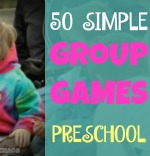Fun In The Sun - 6 Tips For Creating A Mud Kitchen For Your Kids
Kids love mud! And as dirty as they may get, it’s time to advocate messy play so they can learn new skills the fun way. The fastest and easiest way to encourage your kids to get outdoors is to build them a mud kitchen.They'll be tripping over each other to get outside
Building your own mud kitchen is a creative, cost-effective way of enabling messy play for your kids while saving money on an expensive play kitchen.
You can build your mud kitchen in your own way, and in the end, your kids will have the perfect environment in which to get their hands dirty anytime.
This post contains Amazon affiliate links for your convenience.
Photo: Jelleke Vanooteghem/Unsplash
Six tips to create your own mud kitchen
Use What You’ve Got
Poke around your garage and see what you can recycle to save money on your mud kitchen. You can use wood, recycled pallets, and old timber for the construction. Old cookware and bakeware, utensils, and decorations can also be used to finish out the kitchen,
Remember, the idea is to ignite your child’s imagination, so your DIY mud kitchen doesn’t need to resemble a brand-new toy kitchen set.
Stove Tops Add to The Fun
While it’s great to leave some things up to the imagination, it’s a good idea to make your play kitchen resemble a real kitchen by creating a stove top. You can paint the burners on a piece of timber or wood, and you can even add broken or thrifted appliances to your outdoor kitchen to enhance its appearance. You can also use good, old cardboard to create a play stove.
Bake Mud Cakes
The fun part of having a mud kitchen is that your kids get to play with mud and get as dirty as they want. All you need to make mud cakes is some sand or soil and water. You can use old cookware and bake ware to contain them and shape them like cakes and cupcakes.
Parents can get involved by showing kids how to create funky-shaped cookies with cookie cutters and molds or add colored pasta to the mud for added texture. This kind of sensory play is an important part of childhood development, but above all, it’s a whole lot of fun.
Set the Table
A mud kitchen is a fun way to teach your child table manners. Guide your preschoolers through setting a table and laying out the dishes. Show them the way to arrange cutlery and allow your children to bring some garden leaves to create napkins for a rustic table setting.
Add a Sink
Since you’ve introduced messy play to your preschoolers with colored pasta and mud cakes, it’s a good idea to take care of the cleanup. The most logical way to do this is to add a sink to your mud kitchen! To create your sink, use a silver or grey bucket and fill it with water or a big flower put with the bottom plugged works nicely too.
Add a hose in the bucket so that there’s an accessible faucet. This is a great way to teach children how to clean up after themselves. Add some dish washing liquid and a sponge so you can wash all the cookware the kids used before bringing it back into the house!
How to Make your own Dish Washing Soap
Dress For The Occasion
Every chef needs a chef’s hat and apron, so make sure to get these for your child. They will love it! Plus, the apron will offer some protection from mud splatter while playing. Rubber boots are a good idea too. Preschool age kids and toddlers love to wear galoshes!
Have fun with your kiddos and their mud kitchen. You may want to wear some rubber boots yourself! Encourage your children to enjoy free and imaginative play, and you can bet they’ll learn tons of kitchen tricks in the process. Pretend play is the best way to learn!
Pretend Play and Play Date Ideas from Adventures of Kids Creative Chaos
Fun Books about Galoshes from Amazon













